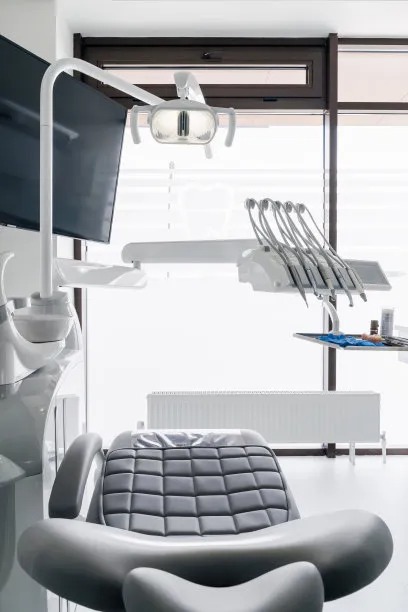Summary: The field of restorative dentistry is evolving rapidly, with dental implants at the forefront of these innovations. This article examines the future of restorative dentistry, focusing on the breakthroughs and benefits that dental implants offer for enhancing smiles. We will explore four key aspects: the technological advancements shaping dental implants, the psychological benefits linked to improved aesthetics, the increased longevity and functionality of dental implants, and the future trends anticipated in the discipline. Each section will provide detailed insights, demonstrating how dental implants not only restore physical appearance but also enhance overall quality of life for patients.
1. Technological Innovations in Dental Implants

Technological advancements are revolutionizing the field of restorative dentistry, making dental implants more effective than ever before. Innovations such as 3D imaging and computer-aided design (CAD) have significantly improved the precision with which dental implants are placed. This technology allows dentists to plan surgeries more accurately, resulting in better fitting implants that integrate seamlessly with existing bone structure.
Furthermore, the development of new materials, such as titanium alloys and ceramics, has enhanced the biocompatibility of dental implants. These materials not only promote better integration but also reduce the risk of rejection or complications. As a result, patients can expect a smoother recovery process and improved long-term success rates.
Additionally, advancements in digital dentistry, including the use of intraoral scanners, enable a more comfortable experience for patients. Traditional impressions can be unpleasant, but these digital tools eliminate discomfort while enhancing accuracy, making the entire implant process more efficient and patient-friendly.
2. Psychological Benefits of Dental Implants
The psychological impact of dental implants extends far beyond the immediate aesthetic benefits they provide. Many patients experience increased self-esteem and confidence after receiving implants, leading to a more fulfilling social and professional life. A bright smile is often associated with positive traits such as friendliness and competence, which can directly influence personal and career opportunities.
Moreover, the restoration of teeth through implants can alleviate feelings of embarrassment or self-consciousness related to missing teeth. This newfound confidence allows individuals to engage more freely in social situations, whether its smiling during conversations or enjoying meals without hesitation.
Psychological studies have shown that investing in dental implants can lead to a significant improvement in mental well-being. Patients often report enhanced overall happiness and life satisfaction, driven by their upgraded appearance and improved oral functions, thereby contributing to a brighter outlook on life.
3. Longevity and Functionality of Dental Implants
The durability of dental implants sets them apart from other restorative treatments. Unlike bridges or dentures, dental implants are designed to last a lifetime with proper care. This longevity not only offers a cost-effective solution over time but also minimizes the need for additional dental procedures, which can be both uncomfortable and expensive.
Additionally, dental implants restore the full functionality of natural teeth, allowing individuals to chew and speak without restrictions. Unlike removable dentures, which may slip or cause discomfort, implants offer a secure and stable solution. This functionality encourages patients to maintain a varied and nutritious diet, positively impacting their overall health.
The process of osseointegration, where the jawbone fuses with the implant, ensures high stability. This natural bonding process mimics how roots anchor real teeth, enabling patients to enjoy activities they may have avoided due to dental issues. Ultimately, the functional advantages of dental implants enhance both daily living and long-term health.
4. Future Trends in Restorative Dentistry
The future of restorative dentistry is bright, with anticipated advancements promising to further improve the effectiveness and accessibility of dental implants. One significant trend is the continued integration of artificial intelligence (AI) in treatment planning. AI can analyze patient data to predict outcomes, helping dentists make more informed decisions tailored to individual needs.
Moreover, as research progresses, we may witness the introduction of even more biocompatible materials that facilitate faster healing. Enhanced understanding of regenerative medicine is paving the way for innovations such as stem cell treatments, which could one day regenerate lost teeth or improve implant integration significantly.
Tele-dentistry is another growing trend that is set to simplify consultations and follow-ups for potential implant patients. This remote approach will not only make dental care more accessible but will also streamline communication between patients and dental care providers, creating a more cohesive treatment process.
Summary:
In conclusion, the future of restorative dentistry is largely influenced by innovations in dental implants, which enhance not only aesthetics but also overall patient well-being. As technology continues to advance, we can expect further improvements in implants’ functionality and longevity, alongside psychological benefits that foster confidence. The exciting trends on the horizon signal a brighter future where restorative dentistry can make a significant impact in everyone’s lives.
This article is compiled by Vickong Dental and the content is for reference only.
Vickong Dental
Vickong Dental is a large medical group established in Hong Kong in 2008 by professors from well-known medical universities in Guangdong and Hong Kong, as well as medical doctors from key national '985' universities (including Master's supervisors and senior professors). The chain of branches brings together expert dentists with PhDs and Master's degrees from Hong Kong and Mainland China, committed to providing high-quality dental treatment.
"Vickong Dental Practices the University Motto of 'Healing and Serving Society,' with a Stable Operation for Sixteen Years. It Has Been honored with Hong Kong Enterprise Leaders's Choice,' and is a Global Trusted Implant Center for the Nobel Implant System. Recommended by Hong Kong Metro Broadcast and Guangdong Television, it Serves Customers from Over Thirty Countries and Regions, Gaining the Trust and Favor of Citizens from the Guangdong-Hong Kong-Macau Greater Bay Area and Surrounding Cities.

Thousands of customers' unanimous praise
The most recognized and highly recommended dental service by customers in the Guangdong-Hong Kong-Macau Greater Bay Area
We Ensure You Receive Detailed Care and Attention Here
Hong Kong standards, Shenzhen prices, Your Trusted English-speaking dentists

Vickong Dental Medical-Grade Instrument Disinfection Process
Vickong Dental Medical-Grade Instrument Disinfection Process

Vickong Dental Chain: A Warm and Comfortable Environment for Treatment






Appointment Hours

Q&A
Why choose Vickong Dental?
Vickong Dental practices the university motto 「Medicine to Benefit Society」, with each branch bringing together highly qualified dentists with doctoral and master’s degrees from Hong Kong and the Mainland, and has maintained seventeen years of steady operation。Recipient of 「2024 Hong Kong Enterprise Leaders Brand」, 「2025 Hong Kong Enterprise Leaders Brand」, a Nobel Biocare Global Trusted Implant Center, and a brand recommended by Metro Radio Hong Kong and Guangdong TV。
To date, we have served customers from more than thirty countries and regions,earning exceptionally high word-of-mouth recognition and trusted recommendations from residents across the Guangdong-Hong Kong-Macao Greater Bay Area and surrounding cities
We have eight major branches in Zhuhai、Shenzhen,and a consultation and service assurance center in Hong Kong,so you can book a free consultation at any time for any questions,which is very reassuring.
If I do not accept the quotation after the CT scan, will I be charged??
No! As long as the actual treatment has not started, you will not be charged any fees.
Will there be any additional charges during the treatment process?
No, there won’t be any additional charges. Before treatment begins, we will clearly explain the treatment plan and its corresponding fees. Only after the patient agrees and signs the consent form will we proceed with the dental service.
Can I pay in Hong Kong dollars?
Yes. Vickong Dental accepts payment in Hong Kong dollars. The amount will be converted based on the exchange rate of the day, and the applicable rate will be clearly communicated to you in advance.
Can I reschedule my appointment at any time?
Yes. Please contact us via **WeChat** or **WhatsApp** as early as possible, providing your original appointment time and details, along with your preferred new date and time slot for rescheduling.













